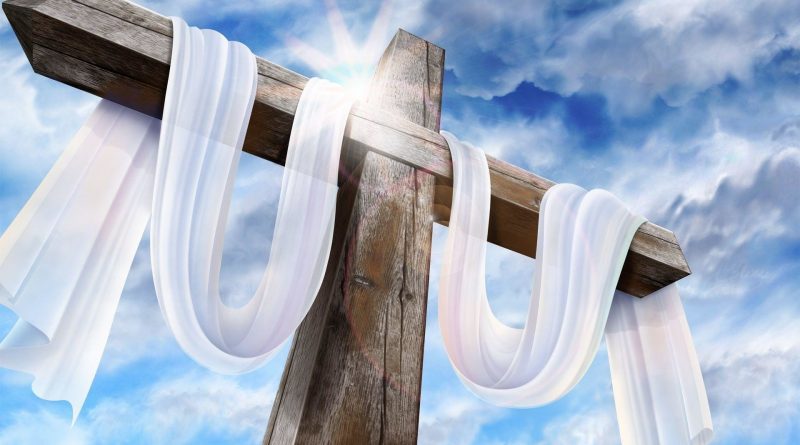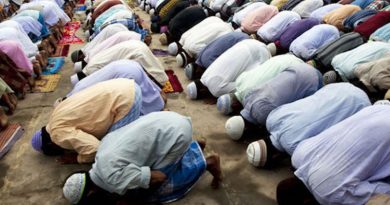The cassock of righteousness and power in the Church
Fr Dr James Ngahy* M. Afr.
There is an expression that goes, ‘If money hits us in the pocketbook, and sex hits us in the bedroom, power hits us in our relationships!’ When we talk of power, very often we think and refer to politicians who are craving for it. We forget that Christians and especially religious or leaders of the Church or churches do exercise power too; at times for their own ends at the detriment of the people God has entrusted to them.
Thus, “The cassock of righteousness becomes the vestment of power” as Cherly Forbes once wrote. Richard Foster in his book titled, Money, Sex & Power: The Challenge of the Disciplined Life, writes, “No issues touch us more profoundly or universally. No topics cause more controversy. No human realities have greater power to bless or curse. No three things have been more sought after or are more in need of a Christian response. Money, Sex and Power discern the biblical principles that enable us to live out a relevant and authentic response to the three greatest temptations of our age.”
It is a fact that, wealth or money has occupied a very powerful spot in the hearts, minds and lives of human beings. Some have lived and died never having had much of it, some have literally given their lives in the legal or illegal pursuit of it, while others have lived and died with more than they could ever have spent in their lifetime and have still felt they never had enough. This implies that for some people money holds such a power over people in such a way that it provides them with power to do what they want to do – whatever that may be.

Some people feel money gives them a sense of personal worth. They feel if they do not have much money, they are not worth much as a person and if they have a lot of it, they are indeed of great worth as a person. It is for this reason that some people associate the accumulation of wealth with the accumulation of power – the more money you have, the more powerful you are.
And when people have a low sense of their personal power, they have an overwhelming urge to amass large sums of money quite out of proportion to their needs. No matter how much they acquire, it’s never enough. This approach also aligns with greed. A greedy person never has enough, no matter how much he or she gets. Therefore, Jesus’ teaching hits the nail on the neck!
Jesus in his wise boldness he remains to be our ‘norm normata’ as he makes his point very clear that money makes sense only when we see it in the context of the ‘principalities and powers.’ Money is one of these powers. When Jesus uses the Aramaic term mammon to refer to wealth, he is giving it a personal and spiritual character. When he declares, “You cannot serve God and mammon” (Mt. 6:24), he is personifying mammon as a rival god.
In saying this, Jesus is making it unmistakeably clear that money is not some impersonal medium of exchange. In other words, mammon is a power that seeks to dominate or posses us, let it be Christians or non-Christians, spiritual leaders or political/ secular leaders. However, this radical criticism of Jesus on wealth may not make sense to us or to our contemporary world unless we see or embrace it in the context of its spiritual reality. It is one of the principalities and powers that must be conquered and redeemed through the grace of God before it can be useable for the greater good of the kingdom of God.
It is a fact that power can be destructive or creative. The power that destroys demands total or absolute control. Very often this leads to the destruction of relationship, trust, dialogue and integrity. History has, beyond doubt, proved this to be true! It can even be diabolical in religious context. Those who regard to be ‘law holders’ unto themselves and at the same time take on a mantle of piety could be particularly corruptible.
When they are convinced that what they do is identical with the ‘Kingdom of God,’ anyone who opposes or challenges them becomes wrong in their sight. When they are convinced that their power is used to achieve good ends, then they always believe that they are right and never go wrong. They become the ‘omni-truth!’ It is very unfortunate that when this mentality possesses them, they take the power of God and use it for their own ends, making their own acclaimed fame.
Today, some media preachers, itinerant evangelists and even priests and religious are accountable to no one; hence, susceptible to the corrupting influence of power. Being in a religious circle or authority one can easily have millions of excuses to justify his or her position for power. If we critically look at our contemporary church(es), how many pastors, priests and religious men and women are accountable to the funds of their churches? Why is it that, at times, when the parishioners or the faithful pose the question of – expenditure – accountability, some of the ‘shepherds of the flock’ get angry instead of giving proper explanation to it?
Or why is it that at times they give unreasonable excuses or give short answers such as: ‘don’t you know that I am the one responsible for this or that project?’ ‘I am the Parish Priest!’ Or ‘I am the one building that church there, if you don’t know.’ Or ‘I am not stealing your money. I have enough to sustain my life.

I can even stop the progress of those projects, if you insist.’ Are these religious leaders representing Christ as such? Some even rich the extend of saying, ‘If you push me too much, I will send back the fund to the donor!’ Would they (pastors/ministers) be such rich or whatever they possess if they were not ministers of the people of God? Where is the spirit of service?
If they are truly good shepherds, following the example of our Lord Jesus with humility in the spirit of accountability, why can’t they make effort to empower the faithful or their parishioners in this matter and work with them instead of working for them?
Are those projects which they claim to handle or supervise their own or church’s projects? The faithful have the absolute right to know the expenditure of their contributions to their church(es) or projects. Preachers, evangelists, priests or religious leaders are simply servants of the people of God and not masters! Jesus alone is always right.
The rest of us must recognise our own foibles and frailties and seek to learn from the corrections and challenges put before us while being faithful to the responsibilities entrusted to us.
If religious leaders – those who feel to be on top of the sky – continue putting on the cassock of righteousness, power may take them down the path of the demonic realm; hence, regret their so-called absoluteness as they destroy the churches through their unaccountability! Jesus remains to be our norm that is not normed by any other norm in matters of cassock of righteousness and power in the Church.
*Fr Dr Ngahy is executive director of Centre for Social Concern (CFSC) Lilongwe, Malawi. Feedback: jngahy@yahoo.com



